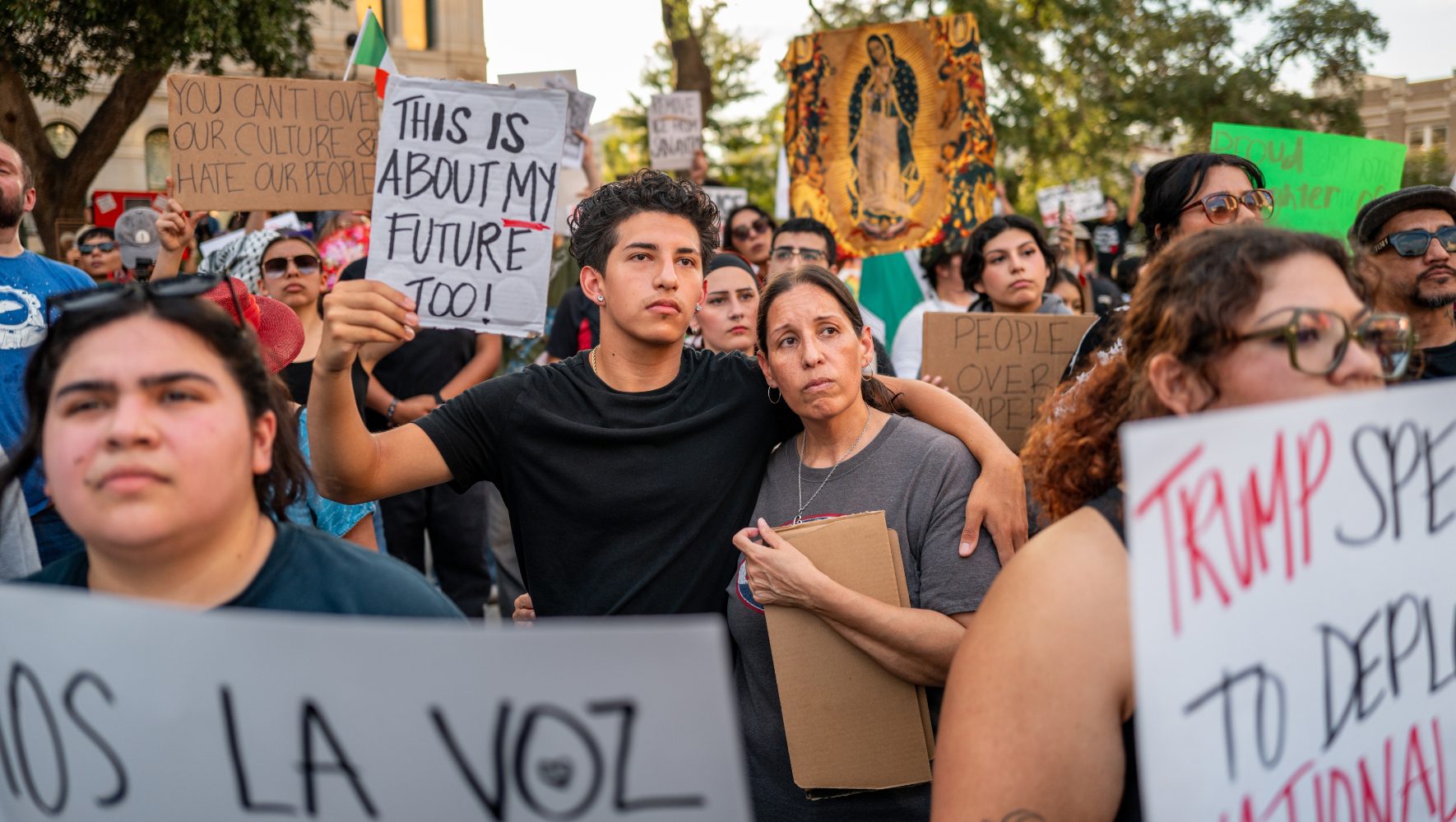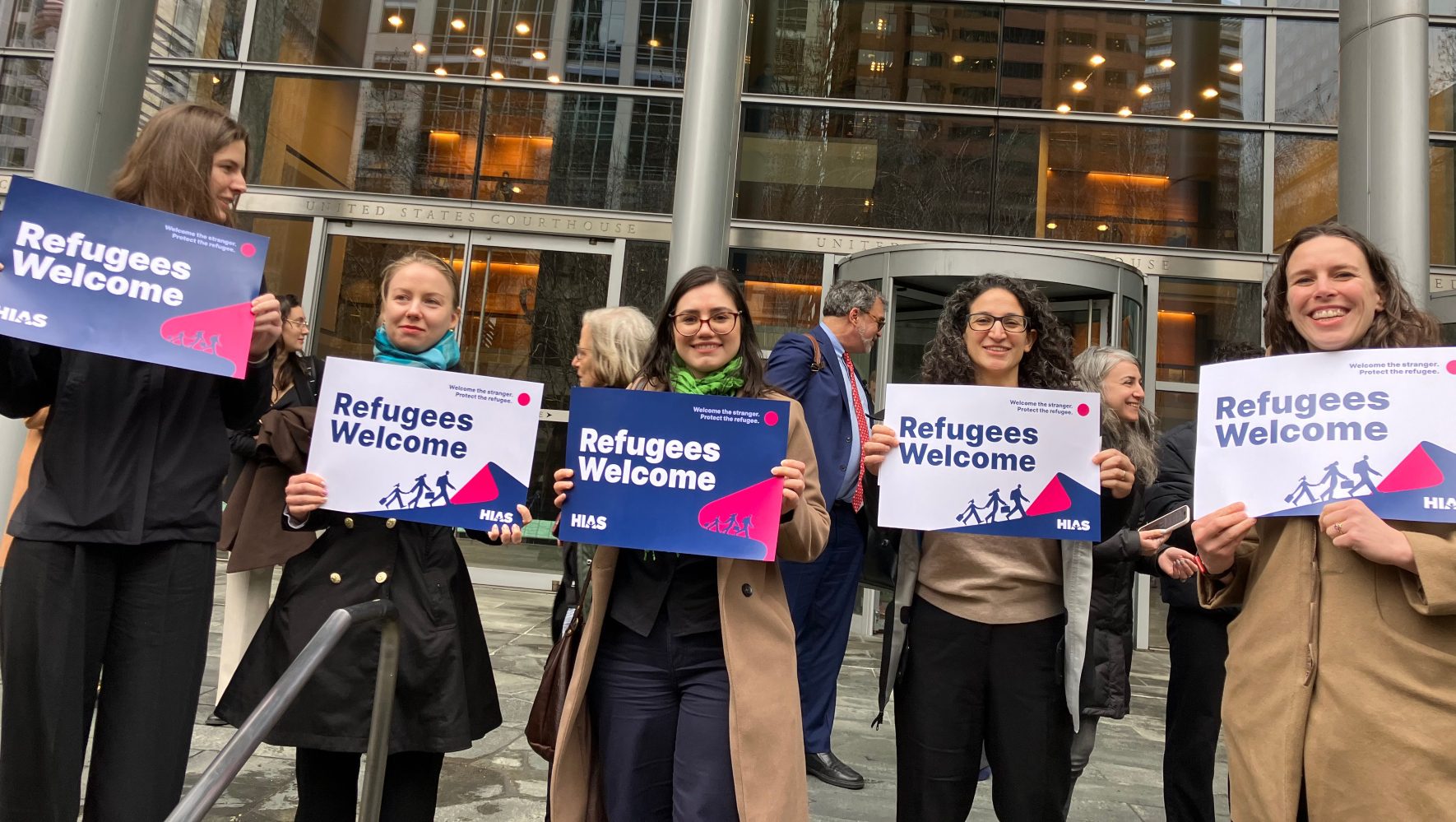Actor Mandy Patinkin Tells HIAS Assembly What Refugees Have Taught Him
By Max J. Rosenthal, HIAS.org
Dec 16, 2020
At the height of the 2015 refugee crisis, as hundreds of thousands of people fled the war in Syria, actor Mandy Patinkin was busy. His hit show, Homeland, was in Germany filming its fifth season. But he was transfixed by images of the people trying to reach safety in Europe.
“I saw these photos of people that reminded me of my ancestors fleeing progroms, fleeing Nazi Germany,” he said. “I wanted to be with those people — to hold their hands and give them water and give them affection and support and walk with them.”
On the day filming ended, Patinkin flew to join the refugees attempting to cross the Balkans. “I’ve never stopped walking with refugees since,” he said.
Patinkin, whose grandfather Max was helped by HIAS when he came to the United States and later served on the board of HIAS’ Chicago chapter, has since become an outspoken advocate for refugees. He and his wife, fellow actress and activist Kathryn Grody, joined HIAS’ National Jews for Refugees Assembly on Dec. 14 to speak about the need to once again welcome refugees and asylum seekers to the United States.
“Anybody that wants to have a decent life, that’s oppressed, that’s our obligation,” said Grody. “That’s what being a Jew means to me.”
The assembly, held via Zoom due to the COVID-19 pandemic, brought together hundreds of individuals, congregations, rabbis, organizations, and elected officials from across the United States. Participants heard not only from Patinkin and Grody but also Teklit Michael, an Eritrean refugee and activist, and HIAS leaders.
All of the speakers celebrated the coming of a new administration in 2021, when President-elect Joe Biden will take office. Biden has already pledged to allow up to 125,000 refugees per year into the U.S., raising hopes that his administration will reverse the past four years of attacks on the immigration system.
But Melanie Nezer, HIAS’ vice president of public affairs, cautioned that refugee advocates must push for ever greater change, not rest on their laurels. “The election is just the beginning," she said. “There’s no magically returning to normal — which never probably existed, anyway — on Jan. 20.”
She pointed out that polls show support for immigrants and refugees at their highest levels in decades, giving activists a clear opportunity. “The moment to push things forward is the moment when things are starting to go your way,” she said.
Michael, the refugee activist, urged participants to speak up for their beliefs. “All of you have a platform, and you can tell my pain, and the pain of others,” he said. “We can make a difference, all of us.”
The assembly concluded by celebrating the fifth night of Hanukkah, lighting menorahs together and hearing a performance from musician and educator Shira Kline. Rabbi Rachel Grant Meyer, HIAS’ rabbi in residence, found it a fitting combination. She compared the attendees to the shamash, the helper candle that lights the others during Hanukkah celebrations.
“All of us together, we all have the power to light the spark in someone else,” she said, urging each person to take action for refugees in the coming year and “grow the American Jewish movement for refugees and asylum seekers to be bigger and bolder than ever before.”



